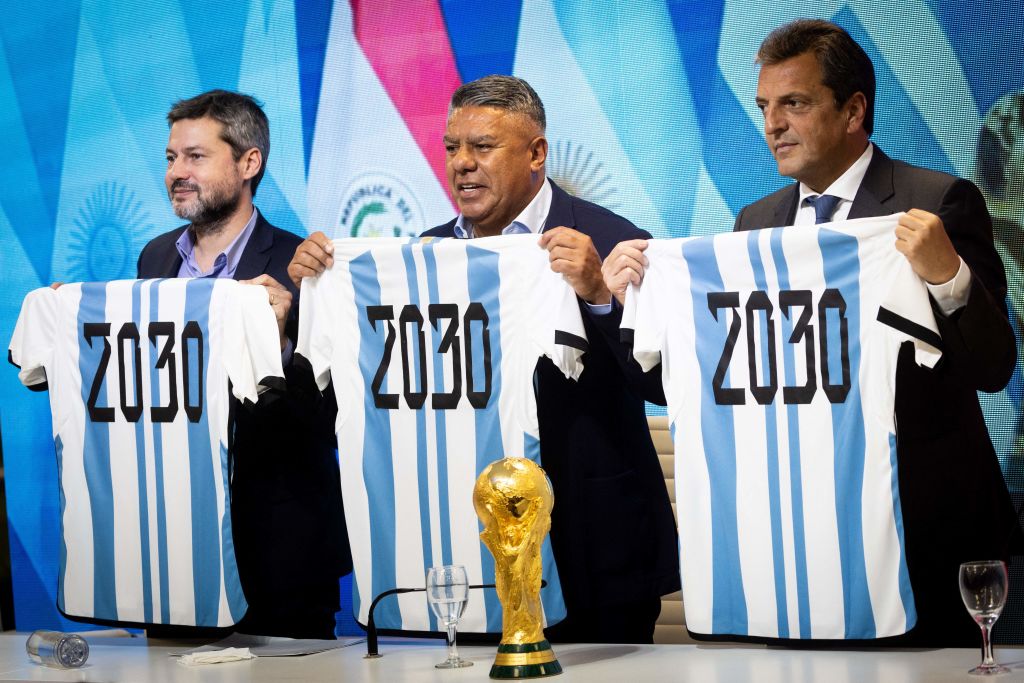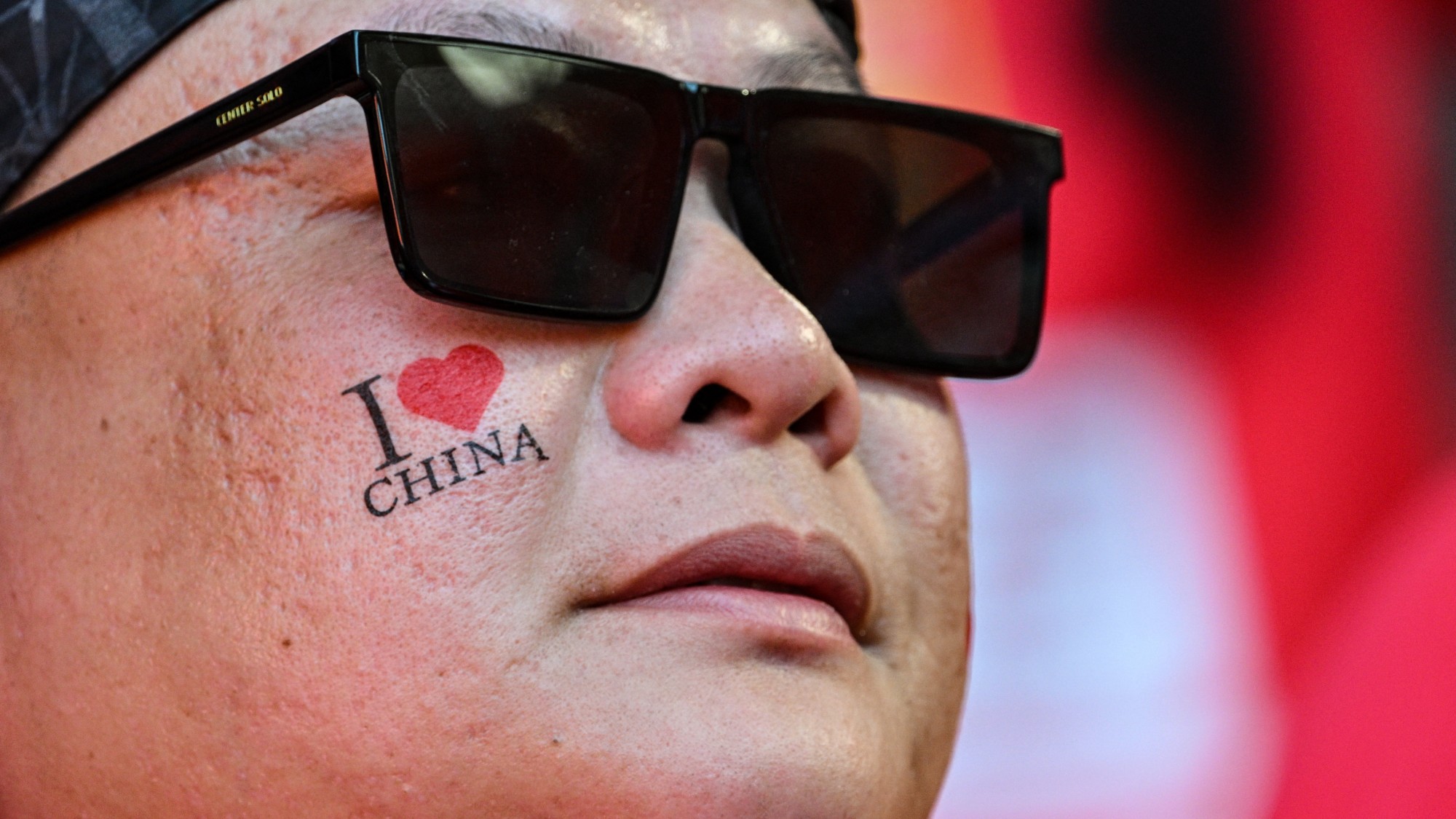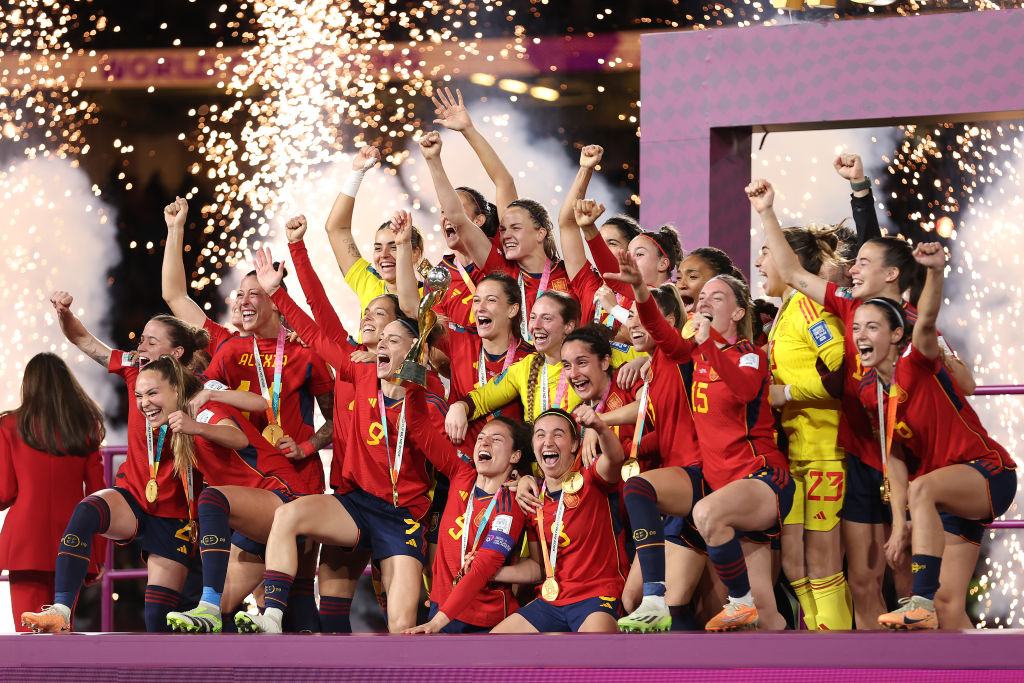FIFA is embroiled in back-to-back controversies around the World Cup
The controversial selection of the 2030 hosts puts Saudia Arabia in a prime position for 2034


A free daily email with the biggest news stories of the day – and the best features from TheWeek.com
You are now subscribed
Your newsletter sign-up was successful
FIFA has announced the hosts for an unprecedented six-nation World Cup in 2030. Spain, Portugal and Morocco will host the majority of the matches while Uruguay, Argentina and Paraguay will host the opening three games. This marks the first time the World Cup will be played on multiple continents, and as such, will involve a significant amount of travel.
The announcement of the 2030 hosts appeared to surprise even seasoned soccer experts and was chastised both by climate groups and European-led soccer organizations.
Meanwhile, the selection of the 2030 hosts appears to put Saudi Arabia in a prime position to host the 2034 World Cup despite its myriad of alleged human rights abuses. While other countries were expected to enter hosting bids, the Saudis ended up being the only ones to do so, placing the controversial kingdom in the driver’s seat.
The Week
Escape your echo chamber. Get the facts behind the news, plus analysis from multiple perspectives.

Sign up for The Week's Free Newsletters
From our morning news briefing to a weekly Good News Newsletter, get the best of The Week delivered directly to your inbox.
From our morning news briefing to a weekly Good News Newsletter, get the best of The Week delivered directly to your inbox.
Why is the 2030 World Cup host selection controversial?
Given that the 2030 World Cup will contain games in Africa, Europe and South America, some environmental groups have expressed concerns about the amount of travel that will be required to accommodate all 48 teams in the tournament. And that's before travel from fans is factored in.
FIFA is "continuing to prioritize the growth of the game ahead of the climate," Freddie Daley of the think tank New Weather Institute told The Guardian. The group was among the chief complainants in an investigation that found FIFA had misled environmentalists by claiming the 2022 World Cup in Qatar was carbon-neutral. That investigation concluded that FIFA gave "a false and misleading impression" that the 2022 games were "climate-neutral or carbon-neutral." Daley spoke of similar concerns for 2030.
Given the significant airplane usage that will be necessary in 2030, the New Weather Institute was "worried" by the league's announcement and how it will deliver a tournament "in line with their targets and international targets around driving down emissions," Daley told The Guardian.
A spokesperson for Carbon Market Watch, another group that criticized the environmental impact of the 2022 games, said the six-country approach could be "a step in the right direction or a recipe for disaster," per The Guardian. The group added that it depended "on how honestly and how well FIFA tackles the tournament’s carbon and ecological footprint." A spokesperson said the 2030 World Cup could be "hugely problematic" if it results in "even more international and intercontinental travel and even more white elephant infrastructure."
A free daily email with the biggest news stories of the day – and the best features from TheWeek.com
Who will host the World Cup in 2034?
Saudi Arabia now appears guaranteed to host in 2034, as it was the only nation to enter a hosting bid by the Oct. 31 deadline. FIFA had also closed off bids to countries outside of Asia and Oceania, and Saudi Arabia is a key member of the Asian Football Confederation (AFC). This made it easier for FIFA to pivot their support behind a Saudi hosting bid.
Saudi Arabia had announced its official bid to host just hours after the 2030 hosts were set. Prince Abdulaziz bin Turki Al-Faisal, Saudi Arabia's sports minister, said in a press release that hosting the World Cup "would help us achieve our dream of becoming a leading nation in world sport."
FIFA will make its official choice at the end of next year, but this will seemingly be just a formality. The decision isn’t that surprising given that Saudi Arabia's de facto leader, Crown Prince Mohammed bin Salman, has reportedly "built close ties to FIFA president Gianni Infantino in the past six years," according to The Associated Press. While Australia has expressed an interest in hosting, it already co-hosted the Women's World Cup alongside New Zealand in 2023, and ultimately decided not to enter a hosting bid for 2034.
As was the case with the 2022 games in Qatar, many are worried about the repercussions of hosting the tournament in a country that has been repeatedly accused of human rights abuses. A number of organizations took to social media to demand that FIFA not go to Saudi Arabia in 2034.
The strongest criticisms came from Football Supporters Europe (FSE), a European Union-based fan network. FIFA is continuing "its cycle of destruction against the greatest tournament on Earth," the group wrote on X, formerly known as Twitter. The 2030 games will be "horrendous for supporters, [disregard] the environment and [roll] out the red carpet to a host for 2034 with an appalling human rights record," FSE added. "It's the end of the World Cup as we know it."
Justin Klawans has worked as a staff writer at The Week since 2022. He began his career covering local news before joining Newsweek as a breaking news reporter, where he wrote about politics, national and global affairs, business, crime, sports, film, television and other news. Justin has also freelanced for outlets including Collider and United Press International.
-
 How the FCC’s ‘equal time’ rule works
How the FCC’s ‘equal time’ rule worksIn the Spotlight The law is at the heart of the Colbert-CBS conflict
-
 What is the endgame in the DHS shutdown?
What is the endgame in the DHS shutdown?Today’s Big Question Democrats want to rein in ICE’s immigration crackdown
-
 ‘Poor time management isn’t just an inconvenience’
‘Poor time management isn’t just an inconvenience’Instant Opinion Opinion, comment and editorials of the day
-
 Will 2026 be the Trump World Cup?
Will 2026 be the Trump World Cup?In the Spotlight US president already using the world’s most popular football tournament to score political points
-
 World Cup 2026: uncertainty reigns with one year to go
World Cup 2026: uncertainty reigns with one year to goIn the Spotlight US-hosted Fifa tournament has to navigate Trump's travel bans, logistical headaches and an exhausting expanded format
-
 China's football crisis: what's happened to Xi's XI?
China's football crisis: what's happened to Xi's XI?In The Spotlight String of defeats and finishing bottom of World Cup qualifying group comes a decade after Xi Jinping launched a football crusade
-
 Saudi Arabia World Cup: have lessons been learned from Qatar?
Saudi Arabia World Cup: have lessons been learned from Qatar?Today's Big Question Human rights groups fear a repeat of issues at the 2022 tournament
-
 Saudi Arabia's 2034 World Cup: glitz, glamour and 'grimly inevitable'
Saudi Arabia's 2034 World Cup: glitz, glamour and 'grimly inevitable'Talking Point Critics claim country is guilty of sportswashing as it stands unopposed to host tournament
-
 Spain beats England 1-0 to win its first Women's World Cup
Spain beats England 1-0 to win its first Women's World CupSpeed Read
-
 US knocked out of Women's World Cup in stunning exit
US knocked out of Women's World Cup in stunning exitSpeed Read
-
 Saudi Arabia's big sports bet
Saudi Arabia's big sports betSpeed Read The recent PGA-LIV Golf merger is just the tip of this oil-funded iceberg
